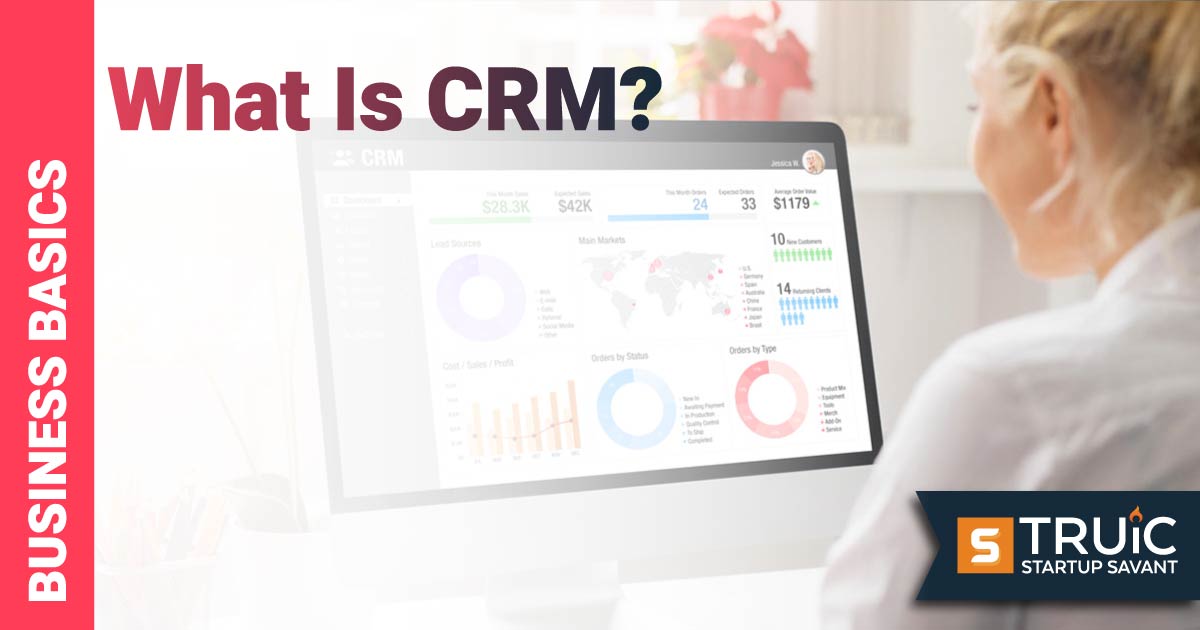8 Best HubSpot Alternatives for Startups 2024

Last Updated: By TRUiC Team
HubSpot is a top CRM platform due to its popularity and viral status. Sales teams use its services to manage and track their customer base and conversions using automation and other advanced technical tools. However, its competitors are slowly rising as alternatives with innovative services and features.
Despite HubSpot’s popularity, it isn’t an option for all businesses. Read on to determine the best alternatives to HubSpot to manage your sales and customers effectively.
Best HubSpot Alternative: Salesforce
Top HubSpot Competitors
The following alternatives to HubSpot provide robust features, ease of use, and flexible pricing suitable for various startup sizes and budgets. Continue reading to find the right platform aligned with your specific needs.
1. Salesforce
Salesforce is a SaaS business suite that provides contact management services and CRM for startups and mid-sized businesses. While the platform is a top automation system for all company sizes, it also guides sales representatives through an audience conversion process.
Like HubSpot, Salesforce is cloud-based but has unique features such as sales forecasting and opportunity management. The marketing tools are designed for businesses to implement as strategies, scaling their brand awareness and profitability.
Other elements that make Salesforce one of the best HubSpot alternatives include audience discovery and self-services useful for tracking past success rates, building customized portals, receiving instant notifications about updates, and acquiring new data on audiences through Social Studio.
Salesforce subscription plans include Professional for $75/month, Enterprise for $150/month, and Unlimited for $300/month, offering a complete CRM experience, customizable features for companies of all sizes, and exclusive company growth tools. In addition, premium subscribers can access self-guided resources, expert coaching sessions, and informative webinars for advice and additional technical support.
You can learn more by reading our Salesforce CRM review.
2. Monday CRM
Monday is one of the most widely-used CRM platforms in the automation technology sector. Since the company opened its headquarters in Tele Viv, Israel, in 2012, it has remained a popular platform among teams that want efficient customer data tracking, giving them control over sales management, while reducing repetitive manual operations and routine tasks.
Although Monday CRM was established several years after HubSpot, it has grown to become one of its legitimate competitors due to its easy customizability, organized navigation, solid functionality, and discount incentives, which HubSpot rarely offers its long-time users. Another advantage is Monday’s work OS which helps synchronize and streamline work processes. While Monday has a beta interface, you can still access its dashboard features easily despite a few initial glitches, which the technical department often resolves quickly.
Monday has affordable prices such as $8/monthly or $96 for the basic package, $10/monthly for the standard package, and $16/month for the professional package, all cost-effective if you’re on a budget but want to receive exclusive access and benefits. After the signup process, you get unlimited project space, automation events, and 24/7 technical support.
Learn more by checking out our Monday CRM review.
3. Freshsales
Freshsales is a CRM tool designed for sales teams to manage customer relationships more efficiently. The platform’s features allow large and small businesses the flexibility to organize their industry verticals and customer transactions.
Content scheduling, workflows, and customer reports are only a few features Freshsales offers. In addition, three paid monthly subscription types are available — Growth for $15, Pro for $39, and Enterprise for $69 — depending on your needs, budget, monthly customer size, and marketing requirements.
Each premium package contains exclusive features, including sales lead tracking, event tracking, pipeline view, and priority phone, chat, and email support. The features give your sales teams resourceful options to maintain your customer base and workflow. However, a free plan is also an option for individuals not ready to join as paying members.
4. Zoho
Zoho is a leading multinational CRM for startups due to its web-based tools, keeping their clientele and partnerships in sync and manageable, giving it leverage as one of the best HubSpot alternatives. The platform has close ties to Google, allowing businesses to integrate their accounts using their Google accounts.
As a cloud-based computing platform, Zoho provides basic project management, easy for beginners, website planning, accounting tools, and email hosting directly on the platform, keeping all work and activity in one space. Additionally, users can reduce security risks by automating client data and collecting critical user information for reference.
Four cost-effective Zoho plans are available: Standard for $20/month, Professional for $35 monthly, Enterprise for $50 monthly, and Ultimate for $65 monthly. Also, after you complete the signup process, you can add up to three additional users for free and access a few view types, such as Kanban, Canvas, and Tubular, while HubSpot limits its users to only two.
Zoho offers a filter feature you can use to see completed tasks, scheduled conferences, and past phone communication. It also lets you find specific events, create reports, and track analytics directly on your dashboard.
You can learn more by reading our Zoho CRM review.
5. Pipedrive
Pipedrive is a CRM software that assists sales teams in startups to mid-sized establishments. Its cloud-based interface is easy to understand and navigate due to its multi-channel support and reporting capabilities. In addition, it enables users to incorporate planning strategies for their deals, which can help them grow their customer base and increase revenue.
Two of Pipedrive’s most popular features are its customer analytics and sales pipeline management. Both are essential for keeping track of monthly sales volumes. Other elements include app creation and lead management.
Pipeline’s pricing starts at $14.90/month for the Essential package and increases to over $1,000 for Enterprise subscribers. However, you can contact the sales department or compare plans to determine the most suitable choice. The options are unbeatable as one of the most widely used HubSpot alternatives because the bundles are reasonably priced without drastic fee increases.
Learn more by reading our Pipedrive CRM review.
6. ActiveCampaign
ActiveCampaign is a cloud software platform that provides exclusive email, marketing, and sales automation services to startups, mid-sized businesses, and large corporations. It has become one of the most preferred alternatives to HubSpot due to its high efficiency in helping users utilize nurturing tactics, automate marketing strategies, and manage campaigns easily.
One of the most critical features of ActiveCampaign is its AI automation, enabling you to create and automize targeted and follow-up campaigns and manage custom stats using its flowchart style editor. Also, it makes tasks and strategies seamless due to its advanced marketing options for increasing customer engagement, click-through rates, and sales conversions. On the other hand, you can implement calendar sync tasks to connect to Apple Calendar and Outlook. The features give ActiveCampaign an advantage over HubSpot as one of its competitors.
ActiveCampaign’s pricing plans include essential campaign tools to create engaging emails that receive responses and convert new target audiences into customers. You can pay for email marketing services at only $9/month. However, the starter package allows you to implement marketing automation, receive accurate reporting, access to over 100 email templates, and 24/7 technical support. In comparison, while HubSpot only provides you with limited email automation access with the starter package and charges up to $1,200/month, ActiveCampaign’s professional plan costs only $49/month, including 500 contacts and many of its campaign features.
You can learn more by reading our ActiveCampaign CRM review.
7. EngageBay
EngageBay is a support, sales, and marketing solution built to help startups and mid-sized businesses interact with their existing customers while using strategies to convert site visitors into sales. The cloud-based CRM platform offers vital tools to its users for relationship building and customer retention.
Several Engagebay features include auto-dial software, Social Suite, video templates, deal management, and email broadcast. You can store documents, track sent emails, and review past chat sessions. While HubSpot directs all inquiries to its sales team, Engagebay is transparent about its flat subscription fees, which vary and provide convenient features depending on a specific plan.
Engagebay’s pricing is reasonable compared to HubSpot’s pricier onboarding fees, offering three all-in-one plans: Basic for $11.99/month, Growth for $39.99/month, and Pro for $79.99/month. Each option includes service and marketing automation, a custom domain, analytical reports, and proposal templates. You can also choose the free plan to experience a few benefits, analyzing the performance and reliability of advanced migration for a limited time.
8. Brevo (Previously Sendinblue)
Brevo is a preferred CRM for startups among users who want another option instead of HubSpot due to its proven qualities that make it a solid competitor. The Paris-based platform is known for its easy-to-use editor and includes a wide selection of templates included in its free plan. Meanwhile, HubSpot doesn’t offer any templates to non-paying members.
One crucial reason Brevo is one of the best HubSpot alternatives is its free plan, which includes unlimited contacts, built-in CRM for startups and large corporations, marketing automation, and web tracking. Also, the Lite plan option only costs $25/month, and the Premium option costs $65/month, but both offer users a 20,000 monthly email volume minimum.
Brevo allows you to send transactional emails such as order notifications and invoices. You can also manage communication channels on its Conversations dashboard, maintaining social media messages on Instagram and Facebook.
Ready to Implement a CRM for Your Startup?
HubSpot is a leading CRM that provides excellent services and features to various brand tycoons and new startups in many industries worldwide. The most popular platform provides powerful sales tools to help startups and mid-sized businesses improve their scalability. However, some individuals prefer to look elsewhere for the best CRM software alternative that offers the essential service and support HubSpot lacks.
In contrast, Salesforce tops HubSpot in customization, analytical implementation, and advanced sales forecasting. While both platforms consistently receive positive feedback and high ratings, Salesforce offers a broader variety of tools for sales teams of all levels and businesses. Therefore, the platform is the best HubSpot alternative due to its groundbreaking CRM for startups and large corporations, proving to be challenging competition.


